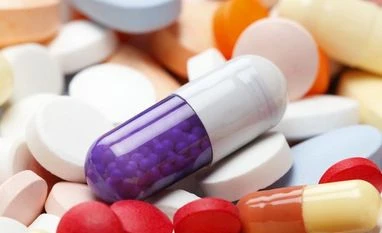Sakshi Dhiman, 29, has frequent headaches. A busy professional and mother of a toddler, she is always hard-pressed for time. Instead of consulting a doctor, she simply pops in a pain killer ever time her head throbs. Last year, when she had viral fever, she chose to take antibiotics instead of letting the fever run its course because she wanted to be back on her feet quickly. This time round when she was down with fever again, even the antibiotics wouldn't help. Her husband's friend, a doctor, has now cautioned her against such frequent self-medication. He has warned her that the pain-killer she has so casually been taking is a blood thinner that will harm her in the long run.
According to the self-medication hypothesis, an individual's choice of a particular drug is not accidental or coincidental, but instead, a result of his or her psychological condition as the drug of choice provides relief to the user specific to his or her condition.
Self-medication is very common and there are various reasons for it. Lack of time and health services, financial limitation, unawareness, catchy advertisements and easy availability of drugs in other than the chemist shops are responsible for the increasing trend of self-medication. Furthermore, it has been noted that many drugs that can only be purchased with prescription in developed countries are available over the counter in developing countries. In addition to this, insufficient medical and legal regulations are also responsible for the propagation of such drugs that are in high demand for the treatment of common diseases.
Self-medication usually involves common drugs that are freely available, like pain killers, drugs for loose-motion, vomiting, pain in the abdomen and those used to treat cough, cold, headache and constipation. Others are vitamins and drugs for mental distress, stress and anxiety. A study carried out in the United States showed that nearly $2 billion per year are spent on such remedies.
Through information, therapeutic advice and education, health professionals have the potential role in preventing risks of self-medication.
Responsible self-medication is the practice whereby individuals treat their ailments and conditions with medicines that are approved and available without prescription, and which are safe and effective when used as directed. Responsible self-medication requires that the medicines used are of proven safety, quality and efficacy. These medicines are indicated for conditions that are self-recognisable, are specifically designed for the purpose, require appropriate dose and dosage forms, are supported by information that describes how to take or use the medicines, lists its effects, possible side-effects, possible interactions, gives precautions and warnings, duration of use and tells you when to seek professional advice.
QUICK TIPS
There are potential risks associated with self-medication. It is important to keep them in mind. Some of the risks are:
According to the self-medication hypothesis, an individual's choice of a particular drug is not accidental or coincidental, but instead, a result of his or her psychological condition as the drug of choice provides relief to the user specific to his or her condition.
Self-medication is very common and there are various reasons for it. Lack of time and health services, financial limitation, unawareness, catchy advertisements and easy availability of drugs in other than the chemist shops are responsible for the increasing trend of self-medication. Furthermore, it has been noted that many drugs that can only be purchased with prescription in developed countries are available over the counter in developing countries. In addition to this, insufficient medical and legal regulations are also responsible for the propagation of such drugs that are in high demand for the treatment of common diseases.
Self-medication usually involves common drugs that are freely available, like pain killers, drugs for loose-motion, vomiting, pain in the abdomen and those used to treat cough, cold, headache and constipation. Others are vitamins and drugs for mental distress, stress and anxiety. A study carried out in the United States showed that nearly $2 billion per year are spent on such remedies.
Through information, therapeutic advice and education, health professionals have the potential role in preventing risks of self-medication.
Responsible self-medication is the practice whereby individuals treat their ailments and conditions with medicines that are approved and available without prescription, and which are safe and effective when used as directed. Responsible self-medication requires that the medicines used are of proven safety, quality and efficacy. These medicines are indicated for conditions that are self-recognisable, are specifically designed for the purpose, require appropriate dose and dosage forms, are supported by information that describes how to take or use the medicines, lists its effects, possible side-effects, possible interactions, gives precautions and warnings, duration of use and tells you when to seek professional advice.
QUICK TIPS
There are potential risks associated with self-medication. It is important to keep them in mind. Some of the risks are:
- Wrong diagnosis of the illness and incorrect therapy
- Failure to seek appropriate and prompt medical advice
- Failure to recognise special pharmacological risks
- Severe adverse reactions
- No knowledge of contraindications, interactions, warnings and precautions
- Duplicacy of the same ingredient, which has already being taken under a different name - that is, double medication which may lead to harmful drug interaction and adverse drug reactions.
- Incorrect route of administration
- Inadequate or excessive dosage
- Excessively prolonged use
- Risk of dependence and abuse
- Food and drug interaction
- Storage in incorrect conditions or beyond the recommended shelf life
Mukesh Mehra
Senior consultant, internal medicine,
Max Super Speciality Hospital, Patparganj, New Delhi
Senior consultant, internal medicine,
Max Super Speciality Hospital, Patparganj, New Delhi
)